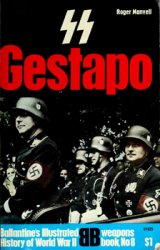Grand master of the Teutonic Order (1407-1410) who died in the battle of Tannenberg.
Ulrich was born around 1360 into a knightly family from Swabia, and later joined the order along with his elder brother Konrad. From 1383, Ulrich held different offices in Prussia before becoming the order’s marshal in 1404. After the death of Konrad, who had been grand master, Ulrich became his successor, on 26 June 1407. One of his main tasks was the permanent pacification of the province of Samogitia, which had been granted to the order in 1398 by the Treaty of Sallinwerder. The order could not, however, secure its lordship, and in 1409 Vytautas, the grand duke of Lithuania, supported a Samogitian uprising. Because Poland refused to guarantee a truce while the order was fighting its Lithuanian opponents, Ulrich decided on an attack on Poland.
This plan seemed at first to be a convincing one, but it turned out to be a fatal mistake. In late summer 1409, the order started a successful attack against Poland that led to a nine-month truce. When hostilities were resumed, King Wladyslaw II of Poland had allied with Vytautas, whereas Sigismund, king of Hungary, and Wenzel, king of Bohemia, did not provide the help that Ulrich had hoped for. On 15 July 1410, the order’s army clashed with the united Polish-
Lithuanian forces near the villages of Tannenberg and Grun-wald. After a fierce battle, the order suffered the most dramatic defeat in its history. Ulrich and more than 200 knight brethren died in combat. His body was later recovered from the battlefield and buried in St. Anne’s chapel at the castle of Marienburg (mod. Malbork, Poland). Because of his decision for war, Ulrich has often been labeled as a hothead, but modern historians have developed a more balanced view of Ulrich’s character.
-Axel Ehlers
Bibliography
Ekdahl, Sven, “Ulrich von Jungingen,” in Die Hochmeister des Deutschen Ordens, 1190-1994, ed. Udo Arnold (Marburg: Elwert, 1998), pp. 106-114.
Urban, William, Tannenberg and After: Lithuania, Poland, and the Teutonic Order in Search of Immortality (Chicago: Lithuanian Research and Studies Center, 1999).




 World History
World History









